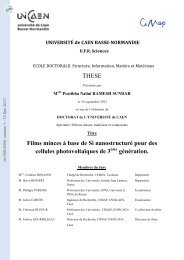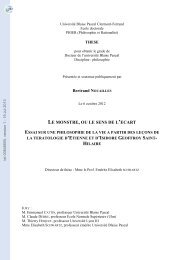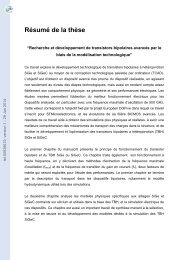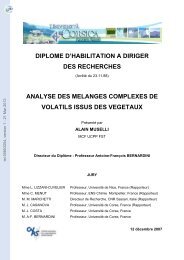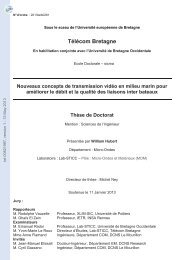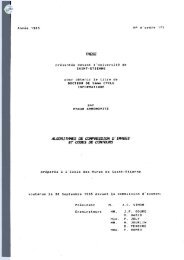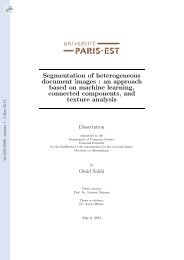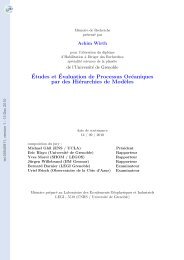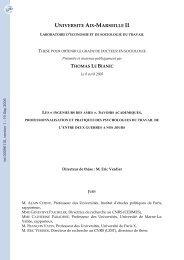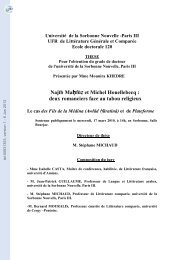Etude de la combustion de gaz de synthèse issus d'un processus de ...
Etude de la combustion de gaz de synthèse issus d'un processus de ...
Etude de la combustion de gaz de synthèse issus d'un processus de ...
Create successful ePaper yourself
Turn your PDF publications into a flip-book with our unique Google optimized e-Paper software.
Bibliographic revision<br />
Hydrogen<br />
Hydrogen is currently produced in <strong>la</strong>rge quantities via steam reforming of hydrocarbons<br />
over a nickel catalyst at about 800ºC (Nieminen, 2004). This process produces a<br />
syngas that must be further processed to produce high-purity hydrogen. The syngas<br />
conditioning required for steam reforming is simi<strong>la</strong>r to that which would be required for<br />
a biomass gasification <strong>de</strong>rived syngas. However, tars and particu<strong>la</strong>tes are not so<br />
worrying. To raise the hydrogen content, the syngas is fed to one or more water gas<br />
shift reactors, which converts CO in H 2 according with the reaction CO + H 2 O = H 2 +<br />
CO 2 .<br />
Methanol<br />
tel-00623090, version 1 - 13 Sep 2011<br />
Methanol synthesis involves the reaction of CO, H 2 and steam in a copper-zinc oxi<strong>de</strong><br />
catalyst in the presence of small amounts of CO 2 at a temperature of about 260ºC and<br />
a pressure of about 70 bar (Paisley and Anson, 1997). The formation of methanol from<br />
syngas proceeds via the following reactions:<br />
CO + H 2 O = H 2 + CO 2 (water-gas shift reaction)<br />
3H 2 + CO 2 = CH 3 OH + H 2 O (hydrogenation of carbon dioxi<strong>de</strong>)<br />
2H 2 + CO = CH 3 OH<br />
Methanol production also occurs by means of direct hydrogenation of CO, but at a<br />
much slower rate (Engstrom, 1999):<br />
2H 2 + CO = CH 3 OH (hydrogenation of carbon monoxi<strong>de</strong>)<br />
To best use the raw product syngas in methanol synthesis and limit the extent of<br />
additional treatment or steam reforming, it is essential to maintain the parameters<br />
indicated in Table 2.3.<br />
2.3. Syngas characterization<br />
The quality of the producer gas <strong>de</strong>pends upon several factors including type of fuel,<br />
gasifier type and operational conditions (temperature, pressure and oxidizing agent).<br />
Following each one is <strong>de</strong>scribed.<br />
34



